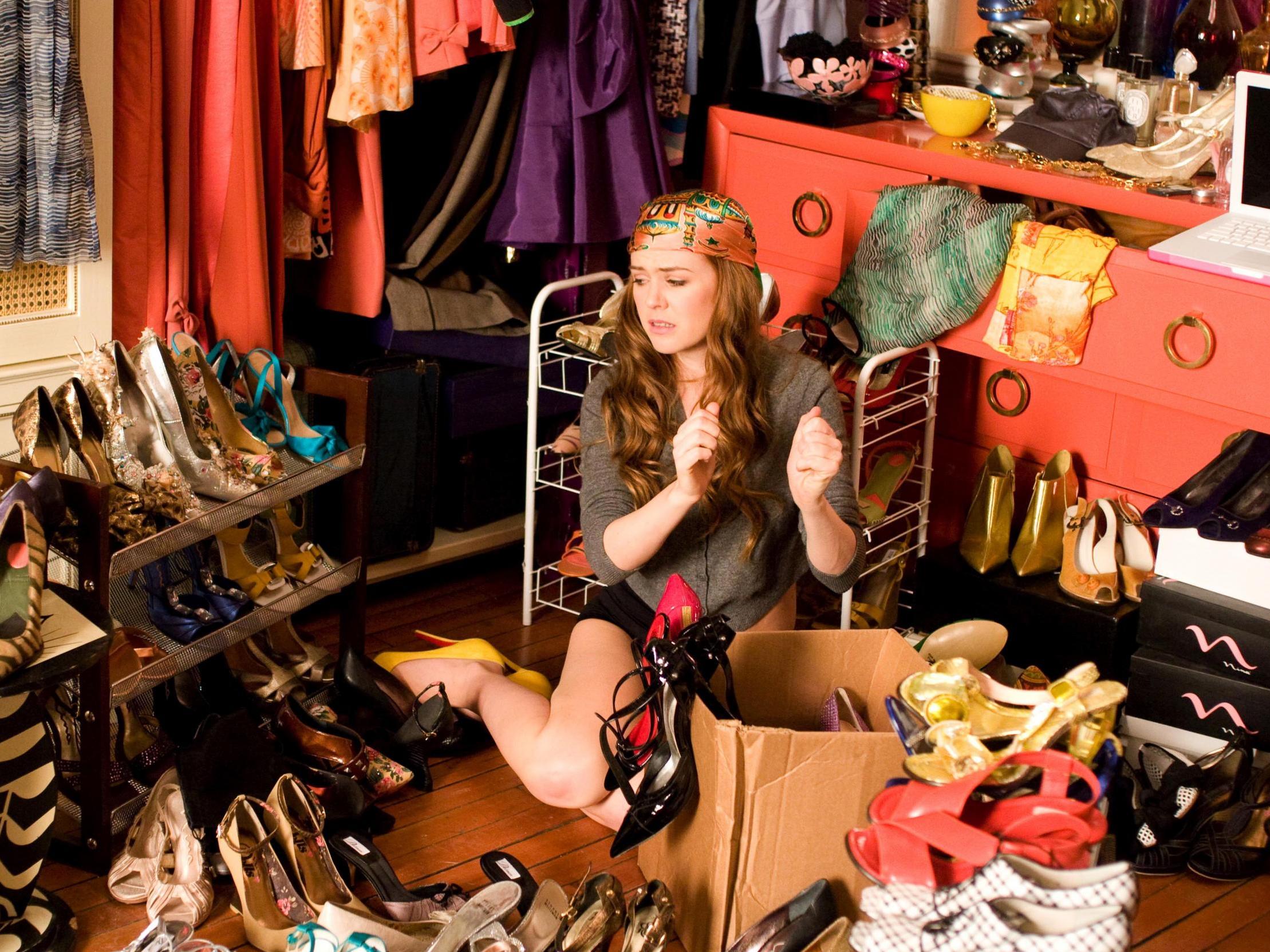20 pledges for 2020: Renting clothes could be the trick to help me curb my fast fashion habits
It might just be the biggest thing to happen to fashion since Kate Moss

William Shakespeare once wrote, “All that glitters is not gold”, which is how I tend to think of fast fashion.
On the surface, that Missguided slogan top might look trendy and say “FEMINIST” in sequins, but deep down, it’s part of a systemic problem in the clothing industry that harms the planet and makes you look like a virtue-signalling chump unless the profits benefit women’s charities, which they probably don’t.
So, for the most part, I think Shakespeare was right. But then he never went to & Other Stories.
This week, I somehow found myself wandering around the Scandinavian high street shop I love so dearly and lusting after a gold sequin pencil skirt that glitters in every sense of the word.
This skirt would be perfect for my best friend’s birthday party this weekend. It would go very well with my black high-neck top. It would complement my eyes. It would… break my pledge.
It transpires that the skirt of my dreams is made entirely from polyester, meaning it is not biodegradable and relies on the petrochemical industries for its raw material, rendering it completely dependent on fossil fuel extraction.
In other words, it is terrible for the environment and most definitely counts as fast fashion. I shouldn’t even be looking at it let alone thinking about buying it. But I am in a post-January plateau, where everything in my life – including my wardrobe – looks drab and in dire need of a pick me up. Something sparkly would really lift my sartorial spirits.
Unfortunately, I don’t have any time to go rummaging through charity shops this week, nor can I be bothered to hunt in the corners of eBay for secondhand treasures. This is where rental fashion comes in.
You might have heard of companies like Hurr, Endless Wardrobe and By Rotation, because they’re becoming increasingly popular among eco-conscious millennials like me, whose eyes are bigger than their wallets and so we wind up splurging half a month’s rent on a Rixo dress that might be just about as sustainable as one from Pretty Little Thing, but we manage to convince ourselves otherwise because of the higher price tag.
The clothes on these apps and websites are from high-end brands like Fendi, Ganni and The Row, and are available to loan for astronomically cheaper amounts. On By Rotation, for example, you can pay £30 a day for a pair of Jimmy Choo boots that probably cost upwards of £600. After your rental period is up, you return your item and it gets washed and ready for another eager shopper to temporarily snap up.
It’s a truly excellent and environmentally friendly way to shop, particularly if you’re looking for a statement outfit you’d only wear a handful of times anyway.
“There are two sides to the problem of fast fashion: production (how we make items and what we make them from) and consumption,” says Eshita Kabra-Davies, who launched By Rotation in October last year. “Rental fashion addresses both; on the consumption side, instead of buying a dress you wear once then having it sit unloved in your wardrobe, you can rent it just for a day.
"As for production, renting is so much more affordable so you can get a much higher-quality item for the same price as buying. This put more expensive ethically produced fashion within the reach of the everyday shopper.”
Rental fashion is becoming increasingly popular among celebrities, too, with Laura Whitmore sporting items from Hurr on Love Island while By Rotation recently dressed actor Karla-Simone Spence in a Monique Lhuillier gown for the Baftas.
“It’s a big step for a lot of stylists and stars, who are used to having everything tailor-made and designed to be worn once,” says Kabra-Davies. “It also means that ‘everyday’ people can have access to these very same items, which is what we’re all about.”
And so let the record state that this “everyday” person did not buy that gold and glittering skirt from & Other Stories. Instead, she rented one from Burberry (Burberry!) for £68 that would have Shakespeare rolling in his grave.
Join our commenting forum
Join thought-provoking conversations, follow other Independent readers and see their replies
Comments
Bookmark popover
Removed from bookmarks